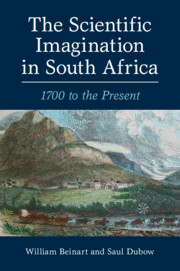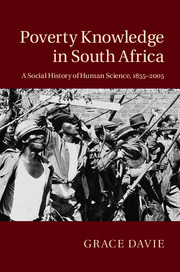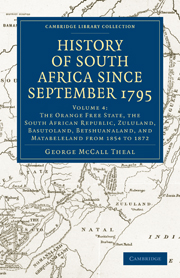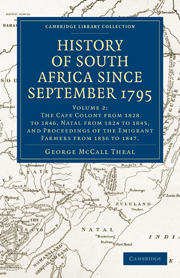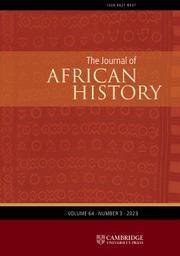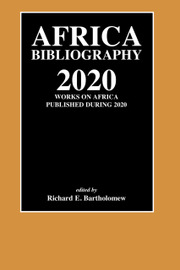The Scientific Imagination in South Africa
South Africa provides a unique vantage point from which to examine the scientific imagination over the last three centuries, when its position on the African continent made it a staging post for Portuguese, Dutch, and British colonialism. In the eighteenth century, South African plants and animals caught the imagination of visiting Europeans. In the nineteenth century, science became central to imperial conquest, devastating wars, agricultural intensification and the exploitation of rich mineral resources. Scientific work both facilitated, and offered alternatives to, the imposition of segregation and apartheid in the twentieth century. William Beinart and Saul Dubow offer an innovative exploration of science and technology in this complex, divided society. Bridging a range of disciplines from astronomy to zoology, they demonstrate how scientific knowledge shaped South Africa's peculiar path to modernity. In so doing, they examine the work of remarkable individual scientists and institutions, as well as the contributions of leading politicians from Jan Smuts to Thabo Mbeki.
- An innovative overview and interpretation of scientific work on and in South Africa covering three centuries
- Adds a new dimension to the historiography of South Africa's race-based modernity and will be of interest to scientists and general readers as well as historians
- Examines the work of remarkable individual scientists and institutions, as well as the contributions of leading politicians from Jan Smuts to Thabo Mbeki
Reviews & endorsements
‘Viewed locally and globally, the history of science in South Africa is an astonishing mix of achievement and conflict that is difficult for even experts to understand. At last, two of the region's finest historians have produced a synthetic account that makes this fascinating story intelligible to amateurs and specialists alike.’ Keith Breckenridge, University of the Witwatersrand
‘In exploring fields of scientific knowledge developed in and about South Africa, The Scientific Imagination provides a welcome, exciting, and fresh synthesis of South African history. Clearly written and expertly integrated, acclaimed historians William Beinart and Saul Dubow recover and reconceptualise neglected themes in our past while suggesting fascinating new historiographical directions.’ Jane Carruthers, University of South Africa
‘In this magisterial account of the place of South Africa in the global history of science, William Beinart and Saul Dubow have once again demonstrated why they are the leading historians of South Africa. As they point out, the scientific endeavor in South Africa has always been political, from the early days of European forays into the region in the fifteenth-century to the dawn of a nonracial democracy in 1994. Written in that learned and lucid style that defines their work, this will set the standard by which future accounts of the history of science in South Africa are judged.’ Jacob Dlamini, Princeton University
‘… this innovative, erudite, and well-written history is of considerable interdisciplinary interest, not just as a wide-ranging reference book for the long history of South African science but also as a guide to the complexity of the relationship between the state and the different disciplines of science.’ Peter Limb, The Journal of Interdisciplinary History
'A far-reaching analysis of the place of science in South African history and culture … an excellently written and documented volume.' A. M. Lucas, Archives of Natural History
‘The authors set out to demonstrate that historians of science would do well to study South Africa closely and that scholars of South Africa should pay more attention to the history of sciences. They provide overwhelming evidence to back both points in an impressive book that deserves to be widely read and studied. An outstanding achievement.’ Casper Andersen, American Historical Review
‘Their new book is a pleasure to read; it is well paced and organised, and highly informative despite covering a good deal of ground. The chapters are imaginatively named and framed in their main contexts. It is a tour de force of accessible and meaningful history. For South Africans who believe that the past is a reasonable guide to the future, I would say it is essential reading.’ Wieland Gevers, Journal of Science
‘The Scientific Imagination makes an important contribution to ongoing debates in the global history of science. Challenging the ‘flattening’ tendencies of the discipline, which often overlooks the power differences between different knowledge producing agents, the authors highlight ‘fluidity and hybridity where this can be demonstrated, yet remain alert to power differentials in knowledge systems and to blockages in exchange’ (p. 24). As such, the book’s analysis of historical scientific practices constitutes an excellent exemplar for historians seeking to examine how both local conditions and global forces shaped the production, use and reception of scientific knowledge in colonial and postcolonial contexts.’ Gianamar Giovannetti-Singh, The British Journal for the History of Science
'Highly recommended.' J. O. Gump, Choice
Product details
May 2021Paperback
9781108940085
418 pages
150 × 230 × 30 mm
0.61kg
Available
Table of Contents
- Introduction: The Scientific Imagination in South Africa
- 1. Scientific Imagination and Local Knowledge at the Cape in the Eighteenth Century
- 2. Scientific Governance and Colonial Institutions, c.1800–1870
- 3: Technological Innovation and the Scientific Imagination in Mining and Agriculture, 1870–1902
- 4. Science, Reconstruction, and the Imagining of the First 'New' South Africa, 1902–1929
- 5. The Commonwealth of Knowledge, 1930–1948
- 6. The Republic of Science, 1948–1990
- 7. Big Science and Indigenous Knowledge: Post-Apartheid South Africa and the African Renaissance
- Afterword.

